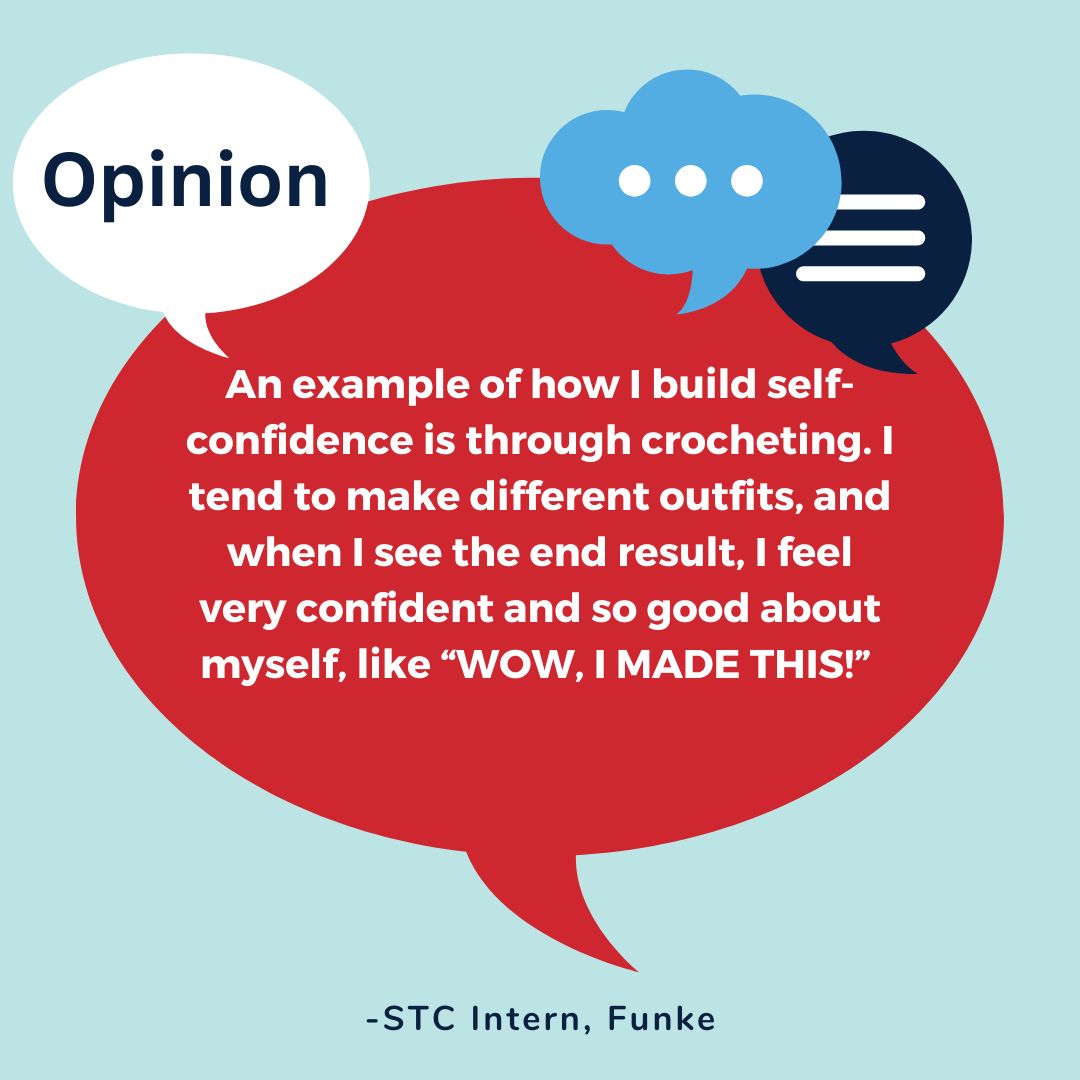 Over the course of their internships, STC interns spent time considering career readiness— what it means for young people today, how it’s packaged, and why it’s important to have youth-centered conversations on work, pathways, school, and more. Here, STC intern Funke outlines why developing self-confidence is important for students.
Over the course of their internships, STC interns spent time considering career readiness— what it means for young people today, how it’s packaged, and why it’s important to have youth-centered conversations on work, pathways, school, and more. Here, STC intern Funke outlines why developing self-confidence is important for students.
As young students, self-confidence isn’t something we tend to consider much. We all just want to have fun, and have a memorable, enjoyable childhood and lifestyle. However, self-confidence should be an important aspect of our lives, because it’s the way we portray ourselves out there.
According to MindTools, a self-confident person inspires trust and confidence in others. A confident person has a positive self-image, so they do what they believe in even if it is unpopular. People with self-confidence also admit to their mistakes and learn from them, take feedback, and go outside their comfort zone.
Sometimes it can be hard to develop confidence, either because personal experiences have caused you to lose confidence, or because you might doubt yourself. But it is important for young people to develop for school, for work, and even personally. I have practiced self-confidence mostly when I talk to my little sibling. I believe they see me as their role model and I always try to present myself like that when being a big sister. I believe students need self-confidence for future success, because it shows how much effort you put into your goals and invest in yourself. It also helps when you are having professional conversations, and is a great way to stand out from other applicants while applying for a job, internship, or apprenticeship. Confidence is important in job interviews. Some sources say confidence “helps us feel ready for life’s experiences.” It also helps us handle disappointment or failing. The National Education Association says that when students are self-confident, they might be more likely to participate and ask for help in school.
There are a lot of things you can do to build your confidence, including small changes to your mindset.
Make a list of your accomplishments, even small ones.
Look back on what you have achieved, like completing school projects, working well with your team, or helping out family and friends. It helps you see how far you’ve come. You can celebrate the effort you put in and the fact that you tried something.
Try new things.
Think back to what your younger self enjoyed, or try to think of things you have accomplished that you can use to develop yourself. Hobbies like sewing, writing, cooking, or anything that makes you happy, can help build your confidence level. It could be being part of a team at your school or trying a new class. The more time you spend on it, the better you will be at it. Practicing helps build confidence. When you work through challenges, you see you can do it. You can express self-confidence in many ways. An example of how I build self-confidence is through crocheting. I tend to make different outfits, and when I see the end result, I feel very confident and so good about myself, like “WOW, I MADE THIS!”
Set your own goals.
These could be short-term goals, like studying for a test, trying out for a team at school, or building relationships or friendships, or long-term goals, like applying to college or developing a new skill. A strategy that I personally use to come up with my goals is the SMART strategy. SMART stands for Specific, Measurable, Achievable, Relevant, and Time. This helps me think of goals that matter to me, and gives me something to work toward. Thinking about what I want to achieve helps build my confidence.

